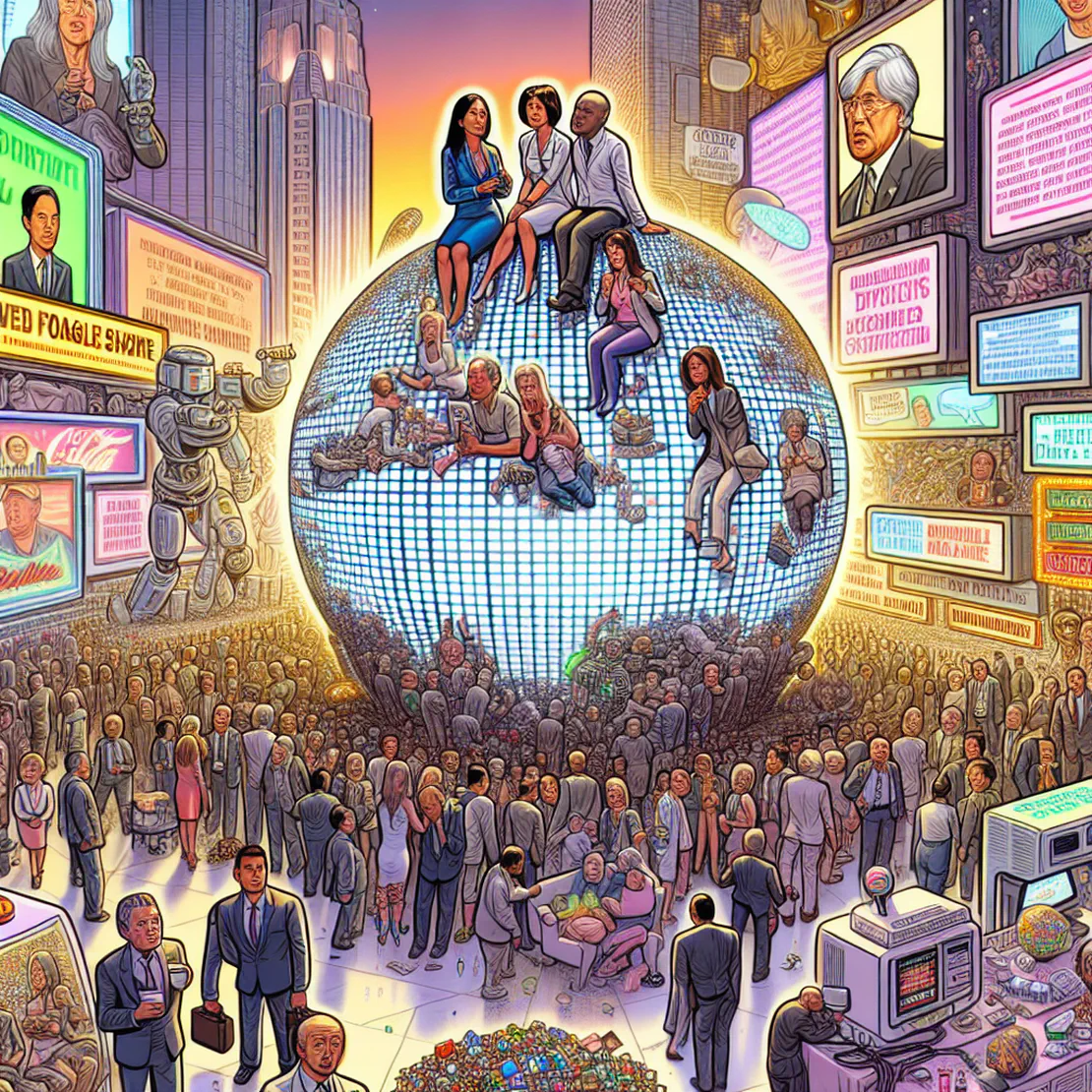
#843 - Richard Dawkins - Why Can No One Agree On Evolution, Race & Religion?
- Modern Wisdom
- Evolution , Religion , Identity , Skepticism , Genetics
- September 26, 2024
Table of Contents
At a Glance
-
Worldview Shifts and Religion - “We covered a lot of ground last night. One of the topics I really wanted to touch back on was much of people’s beliefs and worldviews were pulled apart by typically where they would have got their worldview from being religion.” This point is significant as it delves into how the erosion of religious influence can create a vacuum in people’s belief systems.
-
Rationality vs. Belief - “It’s rather disrespectful, I think, of humanity to say you have to have some crutch to buoy you up in life.” This quote is crucial as it challenges the idea that humans need religion or other belief systems as crutches, promoting a more rationalistic view of human resilience and independence.
-
Convergent Evolution - “Talking of convergent evolution, I looked up the crabs that you mentioned… it’s just happened half a dozen times, which is convergent evolution.” This discussion is important for understanding biological concepts and how certain evolutionary traits can emerge independently in different lineages.
-
Mendel and Darwin - “If only Darwin had read Mendel, he would have got the answer.” This point highlights a historical missed connection between two giants of science, which could have significantly advanced Darwin’s work on natural selection.
-
Gene Embryo Selection Ethics - “I don’t see any problem with, and I don’t think anybody else should see any problem with attempting to remove dysgenic effects.” This quote is pivotal as it touches on the ethical considerations and societal implications of gene selection and genetic manipulation in humans.
-
Skepticism of Evolution - “I’ve been seeing an increasing number of evolution skeptical comments.” This observation is crucial as it points to a broader societal trend where scientific consensus is increasingly questioned, which can have implications for public understanding of science.
-
Impact of Technology on Selection - “The original iPhone, adjusted for inflation, was like $10,000.” This analogy is used to explain how initially expensive technologies can become more accessible over time, similar to genetic selection technologies, illustrating economic concepts within a scientific discussion.
What to Do
-
‘Focus on Rational Understanding’ - Rationality helps in understanding and accepting life complexities without relying on external crutches like religious beliefs, which may not always provide sustainable support.
-
‘Accept Human Irrationality’ - Recognizing and accepting that human psychology often involves irrationality can lead to a more compassionate and realistic approach to understanding human behavior and decision-making processes.
-
‘Embrace Change and Adaptation’ - Understanding and accepting that beliefs and worldviews can evolve over time helps in coping with changes and uncertainties in life.
-
‘Value Personal Growth and Self-Reliance’ - Encouraging self-reliance and personal growth without overly depending on external systems or beliefs can lead to more fulfilled and resilient individuals.
-
‘Seek Evidence-Based Beliefs’ - Advocating for beliefs grounded in evidence and rationality helps in building a more fact-based understanding of the world, which can be more reliable and less prone to manipulation.
-
‘Acknowledge and Use Your Social Environment’ - Understanding the importance of social interactions and relationships can enhance personal development and provide a support system.
-
‘Promote Positive Psychology’ - Utilizing positive psychology to project better versions of oneself can lead to improvements in personal well-being and fulfillment.
-
‘Understand the Role of Genetics and Environment’ - Acknowledging the influence of both genetics and environmental factors on personal traits can lead to a more nuanced understanding of human behavior.
-
‘Be Open to Technological Advances in Medicine’ - Being open to advancements in medical technology, such as genetic engineering, can lead to better health outcomes and understanding of diseases.
-
‘Maintain a Realistic Perspective on Technological Access’ - Recognizing that technological advancements often become more accessible over time can prevent initial frustrations and inequalities from becoming overwhelming.
What to Get
Summary
In this podcast episode, host Chris sits down with renowned evolutionary biologist Richard Dawkins, following a live event in Austin, Texas. The discussion delves into a variety of intriguing topics related to science, religion, and society. Richard Dawkins, known for his outspoken views on atheism and evolution, shares his insights on the recent rise of cultural Christianity, the evolutionary implications of religious beliefs, and the nature of human consciousness.
One of the key points of the conversation revolves around the phenomenon of cultural Christianity. Dawkins emphasizes that being culturally Christian does not necessarily entail a belief in Christian doctrine. He explains that many people are culturally influenced by Christianity due to their upbringing in predominantly Christian societies, yet they may not truly believe in its teachings. This distinction highlights the complex relationship between cultural heritage and personal belief systems.
The discussion also touches on the role of religion in the evolution of human societies. Dawkins suggests that religious beliefs have historically provided frameworks for understanding the world, especially in the absence of scientific explanations. However, he argues that as science provides more answers, the need for religious explanations diminishes. This transition, according to Dawkins, can lead to a vacuum where individuals struggle to find meaning outside of religious contexts.
Another fascinating aspect of the episode is the exploration of human consciousness. Dawkins and the host discuss various theories about why consciousness might have evolved. They contemplate whether consciousness is merely a byproduct of social interactions and the need to understand complex social networks within early human communities. This part of the conversation provides a deep dive into the psychological and evolutionary underpinnings of human awareness and self-perception.
Throughout the episode, Dawkins remains steadfast in his commitment to scientific inquiry and skepticism of unverified beliefs. His perspectives challenge listeners to think critically about the origins of their own beliefs and the evolving interplay between science and religion in contemporary society. The episode not only sheds light on Dawkins’ theories but also prompts a broader reflection on the ways in which humans seek understanding and meaning in an increasingly complex world.


